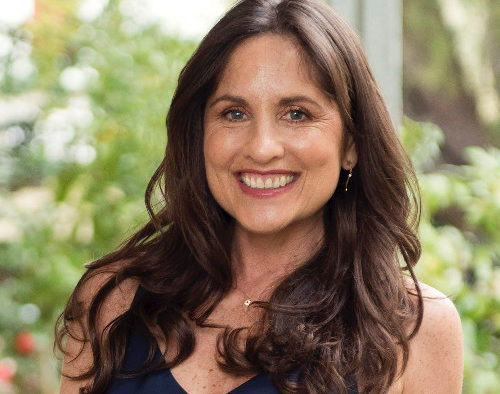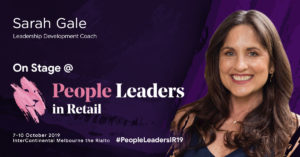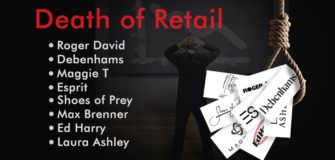Interview with Sarah Gale – If You’re Not Investing Into Your People, What Are You Doing?
Share

After three decades in the fashion industry, Sarah Gale realized that what she enjoy most is leading people. Her passion about leadership and assisting individuals in developing their leadership skills has what lead her into becoming a personal coach.
Let’s learn more about her through this interview.
SEJ: How did you get into retail and why did you stay?
SG: I started in wholesale when I came out of university – I went into wholesale after uni. I was selling to big brands and got offered an assistant buying job with Portmans. I loved fashion and I loved product and the thought that I could influence product that went into stores.
SEJ: Sarah, you’ve been in retail a while, what is the biggest change you’ve seen impact the people in the sector over this time?
SG: I think it has changed incredibly since I started my career; the biggest change I’ve seen is that we’ve moved away from a dictatorial regime where authority governed everything. I’ve seen a shift toward a more collaborative workspace and people appreciating work a lot more. There has also been a lot more diversity injected into retail.
As veterans of the industry, we can’t afford to ignore the new takes on retail and need to be more actively listening and understanding that we have workplaces filled with a generation of a very different customer. The old school mentality of retail can be detrimental to growth and development. Those who look at how they need to dictate to the market aren’t listening and aren’t appreciating different ways of doing things. This leads to the problems we see in retail today because the customer is changing, and this is across retail.
Our leadership is what governs success and if we can get this right, we can succeed. We can have greater impact through more active listening, more questioning and a will to understand the market using all the data now available. We need to know how to analyse the data and customer behavioural shifts and be responding accordingly rather than dictating our own point of view.
SEJ: What attracted you to the profession?
SG: It was as simple as my appreciation for clothes and outfits to begin with.
When we say people don’t see retail as career, we often refer to people on the shopfloor. I think this is influenced by a lack of building a solid career path for them. We empahasize to people the importance of the bottom line, yet investing in someones professional and personal growth( that they can have from a retail career) can be a good ROI. It’s in our personal interest to really grow their own development with their career.
Often people use retail as a fill-in and seen as something that will put dollars in the pocket. As retailers, if we’re not offering them anything other dollars, then how can we expect them to see retail as a prospective career?
My experience was going through the buying stream and this was a very conscious career opportunity on my part. I loved the development of product and I have a good eye for this. I am also attuned to human behaviour and this helped me read and understand trends and see what the next trend would be. As we move and shape as a society, the trends change and are inherently linked.
SEJ: How did you find your PD?
SG: There wasn’t an emphasis or support of my personal growth within the companies I worked for; it was a lot of self-driven, lots of courses, workshops and countless books. In the earlier decades of my career I felt like the business wanted businesspeople to be businesspeople and not think so much
about how the whole person was developing; it seemed to be based purely on performance, rather than considering the strengths within the whole person, which is an indicator of their potential for future career streams within the industry. For professional development I learned on the job and with personal development – it’s a daily and weekly practice for me.
SEJ: What do you think gave you longevity as a retail leader?
SG: I really loved developing product and working with people. Whether it be people in head office, stores, my team, or indirectly working with customer behaviour. I was constantly reading people and I really enjoyed this. This kept me in the sector; I love the ever-changing nature of retail and the constant evolving revolution. I like fresh, I like newness, I like innovation. I like thinking about what’s next and how to grow with change. I am very dedicated to growth and I like to see others growing also.
SEJ: How do you think omnichannel retailing is affecting the role of the leader?
SG: I think it’s making people look at retail with a much broader lens. Omnichannel means we need to listen and respond rather than come with pre-conceived ideas. We get a lot of feedback and data from the channels and this gives us something to act on. It’s so tempting to say ‘I know how this works’, but we need to let go of this to ensure that we’re not limiting ourselves.
Omnichannel is about moving forward and connecting with the consumer and be more authentic in this connection to ensure more meaningful and long-term connections. It’s all about the customer, not about the retailer.
SEJ: What is the biggest pain point for retail leaders today and what advice would you give for this?
SG: The biggest pain point is for retailers to get out of their own head and think about the problems from a different lens. We need to think about the customer and create more personalised, memorable experiences. We need to let go of being the ‘know all’ and let customers tell us what they know.
SEJ: Where would you like to see retail leaders focusing their attention?
SG: I would like to see retailers focusing their attention on people. To me, people are customers and staff – whatever people touch your brand are your community and this is important. When we talk about our people, we separate the people who work for us and the people who buy from us. They’re both part of the community – who we can tap into, to help us really understand the customer?
We should be looking for mentors in their 20s to help us understand who we’re trying to connect with. And you need to really listen and learn from them. If we can start to understand that people, wherever they are, are our greatest resource, then we can grow. Too much of the time we focus our attention on bottom-line profit. This profit comes from the people who spend and the people who connect with the customer. The people are what drives commercial success.
Any final comments?
Our people have so much to give, we need to be listening to the generation that we’re selling to and we need to be developing these people and creating a culture of self-leadership throughout the business. Then you create leaders within the business and that’s what drives innovation.
Catch Sarah Gale live on stage @ People Leaders in retail, 8-9 October 2019 at InterContinental Melbourne the Rialto. Learn more here.




















Follow us on social media